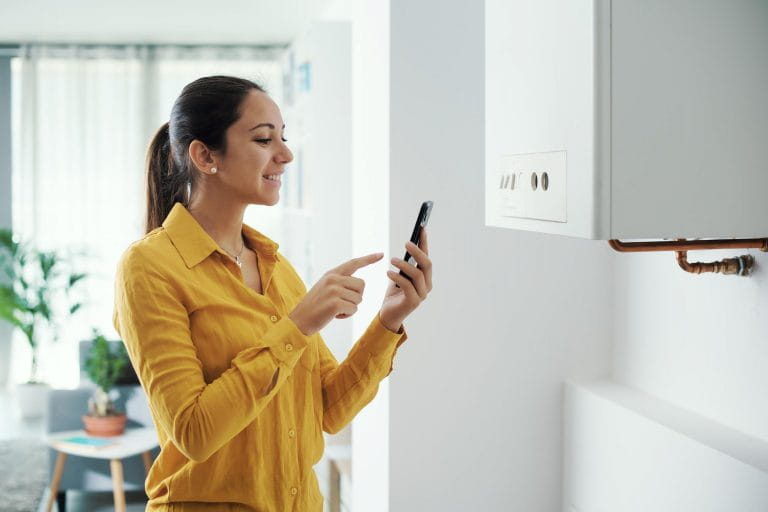Maintenance of the heating system in your home is essential to keep it working correctly and to prevent breakdowns and pointless wasted energy.
In fact, if a system is in bad condition, as well as causing problems in terms of liveabilityfor those who live in the house, it can also mean notable expense in case of failures, and on top of this increased consumption that has a significant effect on your energy bills.
Routine maintenance on your heating system has also been a legal obligation since 2013, as established by Decree no. 74 of 15 April 2013 concerning energy efficiency for summer and winter conditioning systems, and it normally needs to be carried out once a year.
This maintenance must be carried out by a specialist technical engineer and usually costs between 50 and 100 euros (varying according to region and to the type of system).
Fines can be issued in the event that maintenance is not carried out and this can reach up to 3000 euros in more serious cases.
Maintenance should be carried out in spring or summer, or in any case, during the warmer months.
It is easy to see why: when the checks are being carried out, the system needs to be switched off and in the winter, this can be a problem.
What’s more, inspection engineers tend to have a lot more time in this period and it is easier to schedule an appointment.
Even when it comes to costs, since there are no emergencies in this period, they are lower.
Boiler maintenance requires a series of different interventions, although they are all equally important to guarantee that your system stays in good working order.
It ranges from cleaning through to fume checks.
It is also necessary to check your radiators to make sure they are working correctly.
During routine boiler maintenance, the parts of the system that undergo the most use are checked, i.e., the areas at most risk of wear, such as the burner and the heat exchanger.
We can take a look at all of these operations below.

What are the main elements in heating system maintenance?
There are different operations to carry out during heating system maintenance.
Boiler part maintenance
It is essential to clean the burner and the heat exchanger.
Inside the burner is where the fuel and combustion are mixed to heat up the water.
Cleaning removes any slag that can affect the performance of the system.
In the exchanger, cold water from the mains system is circulated through the system.
Constant water flow can lead to the formation of scale which in time can cause serious damage.
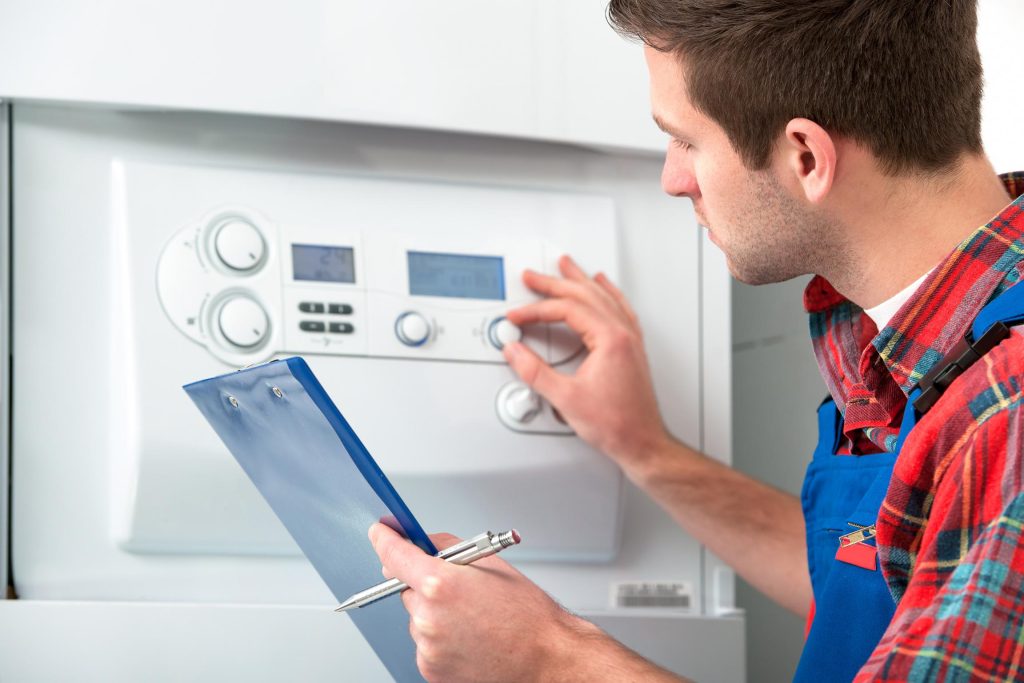
Fume check
Legal requirement every two years (but also annual for certain types of system).
During the fume check on the boiler, the engineer analyses the combustion performance and the concentration of carbon monoxide in the heating system, to establish a smoke index.
This serves to define the energy efficiency of the system.
It can only be carried out by a specialist technical engineer using the relevant instruments.
At the end of the inspection, the system will be given a blue or green sticker (according to the number of inhabitants in the city of residence), which certifies that the system is working correctly, and that all charges have been paid.
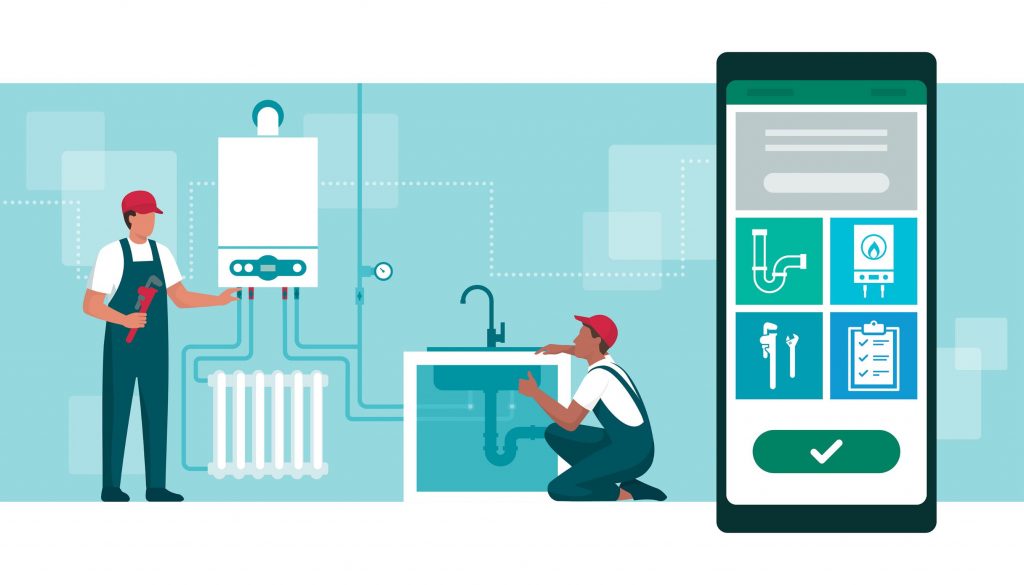
Flushing
Often, the water that circulates through a heating system can stagnate for several years in the system itself, which affects all the parts - from the pipes, to the radiators, and even the boiler - due to the presence of chlorine and metals.
By flushing the system, which is carried out by the boiler itself or using an external pump, an acid is flushed through the system to remove the build up.
After this, the system is then bled out and refilled with clean water.
This intervention is obligatory when renovating a building and this also involves the heating system or when a new boiler or radiators are fitted, as well as when a new system is installed.
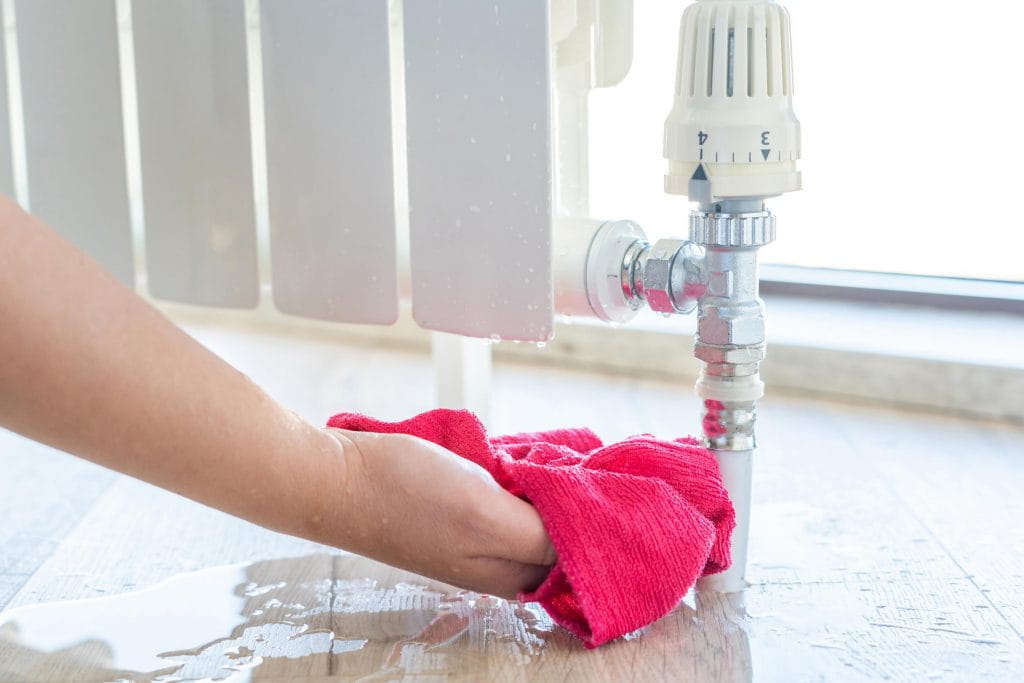
Bleeding the radiators
It is recommended to bleed the radiators, especially after a long period without use.
Bleeding the radiators is easy: to carry out this operation, open the vent valve to remove any unwanted air inside the radiator since this prevents the correct flow of hot water.
Usually the valve is in the top part of the radiator and it needs to be opened to vent until water begins to come out. Leave the water to flow for a few seconds, until the jet becomes a continuous flow.
Clearly, this operation is to be carried out when the radiators are cold and it is a good to have a bowl to collect the water as it comes out.
This operation should be carried out on all of the radiators in the house.
Once all the radiators have been bled, check the water pressure in the boiler.
If it is higher than 2 Bars, it means that there is still air in the system and it needs to be bled again.
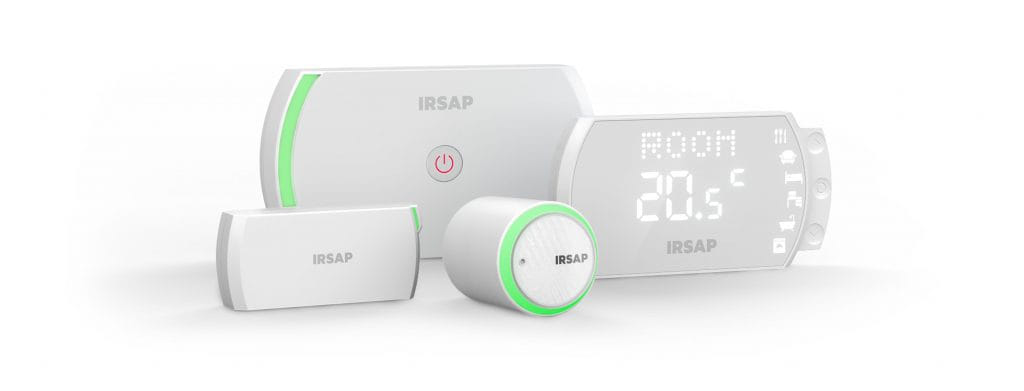
The smart heating system by IRSAP NOW protects your system
Installing an intelligent heating system like IRSAP NOW can be a great help in making sure your system continues to work correctly.
It is a highly customisable, multi-zone, which uses the Wi-Fi system and a dedicated app to keep your whole system under control.
Specifically, the smart thermovalves from IRSAP NOW give you excellent control over every single radiator in your home.
In summer, when your heating is off, these thermovalves should be left open and working.
This way there will always be good water circulation in the radiators, preventing the formation of scale without burning gas and thereby affecting your bills.
These are wireless devices that dynamically control the water flow, increasing the efficiency and the condition of your heating system.
They also serve to give you a prompt temperature reading in every room, which can be adjusted using the IRSAP NOW app.
The intelligent thermostatic valves can be be installed on the majority of radiators available on the market.
Using the Connection Uni, a wifi network and the app, they are all connected to the intelligent thermostat of IRSAP NOW.
Using the Smart Thermostat it is possible to monitor the overall state of the whole system, regulate the temperature and even get useful tips on how to improve the quality of the air in your home, thanks to its humidity detectors.
Even the intelligent thermostat gives you real-time information and can be remotely controlled by app, which makes it compatible with voice assistants such as Alexa and Google Home.
Regular boiler maintenance during the summer is essential to guarantee you a heating system that works correctly.
And to keep your system healthier for longer, it is an excellent idea to install a smart heating system, especially if you want to save on costs, both in terms of consumption and maintenance.
Contact us for more information about the advantages of an IRSAP NOW intelligent heating system.
